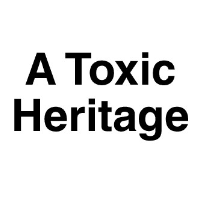Oakland Is Latest City to Sue Monsanto over PCB Pollution in the Bay

Oakland officials invited Monsanto this week to help pay for the city’s share of a state-ordered cleanup of toxic PCBs (a chemical they once manufactured) in the San Francisco Bay, estimated to be $1 billion.
Oakland joins a growing list of cities suing Monsanto (pdf) as regulators around the nation order them to take expensive mitigating steps to shield people and the environment from this omnipresent pollutant. The State Water Resources Control Board made a recent determination that polychlorinated biphenyl (PCBs) in the Oakland’s storm drains was messing up fish and wildlife in the bay and wasn’t all that pleasing for the humans.
The board raised the standard for the amount of PCBs allowed in the municipal storm water flowing into the bay. The new permit requirements will cost a lot of money. San Jose and San Diego have each filed their own lawsuits against Monsanto in California, and Spokane and Seattle in the Northwest.
PCBs have been around since the 1930s. They were heavily used during World War II and were in coolants, paint, adhesives, motor oil, plastics, dyes, rubber products, insulation, electrical capacitors, transformers, wood floor finishes, caulk, sealants, inks, lubricants, surgery implants, carbonless copy paper and myriad other products.
PCBs are persistent organic compounds that don’t easily break down and dissipate.Monsanto was the only commercial manufacturer after the war and, according to both the Oakland and San Jose lawsuits, “knew that PCBs are associated with serious illnesses and cancers in humans and that humans may be exposed to PCBs through ingestion and dermal contact.”
The lawsuits are nearly identical.
There is evidence that Monsanto were aware of the dangers from PCBs for years before they were banned. Oakland City Attorney Barbara J. Parker said, “Monsanto knew that its products posed a significant threat to human and environmental health around the world. However, the company chose profits over protecting people, and American cities and citizens are still suffering the consequences.”
Monsanto’s response to the lawsuits has been to argue that production of PCBs ended two years before the U.S. Environmental Protection Agency (EPA) banned it, third-party companies that used the chemical in their products and unsafely disposed of it are the ones who should be held accountable. Monsanto also argues that the company that manufactured the product after WWII no longer exists.
Monsanto split into three companies years ago, but the one that maintains the name only produces agricultural products. Pharmacia is in the pharmaceutical business and Solutia is the chemical manufacturer. The cities sue all three of them.
–Ken Broder
To Learn More:
Oakland Sues Monsanto for Allegedly Polluting the San Francisco Bay (by Mike Blasky, Oakland Tribune)
Monsanto Accused of Knowingly Polluting SF Bay with Toxic PCBs (by Lauren McCauley, Common Dreams)
San Jose Follows San Diego Lead in Suing Monsanto over PCB Contamination (by Ken Broder, AllGov California)
City of Oakland v. Monsanto Company, Solutia and Pharmacia Corp (U.S. District Court Northern District of California) (pdf)
- Top Stories
- Controversies
- Where is the Money Going?
- California and the Nation
- Appointments and Resignations
- Unusual News
- Latest News
- California Forbids U.S. Immigration Agents from Pretending to be Police
- California Lawmakers Urged to Strip “Self-Dealing” Tax Board of Its Duties
- Big Oil’s Grip on California
- Santa Cruz Police See Homeland Security Betrayal in Use of Gang Roundup as Cover for Immigration Raid
- Oil Companies Face Deadline to Stop Polluting California Groundwater





